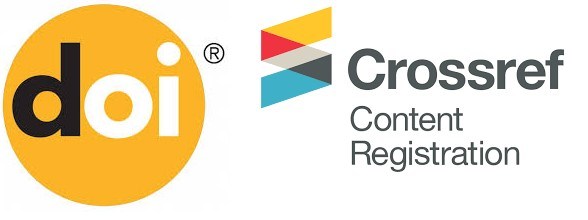Noticing: Una revisión bibliográfica sobre los orígenes y perspectivas actuales
DOI:
https://doi.org/10.46219/rechiem.v13i3.92Palabras clave:
Noticing, Mirada profesional, Percibir, Estudio basado en citas.Resumen
Esta revisión bibliográfica parte de la relevancia del constructo del noticing del profesor en la Educación Matemática y pretende explorar el concepto del noticing a partir de las obras que dan origen a su estudio en nuestra área y describir las perspectivas teóricas que se encuentran en sus bases y las vertientes investigativas que actualmente derivan de estas. El método utilizado para esta revisión sistemática de la literatura ha sido citation-based study (estudio basado en citas) que ofrece unos procedimientos bien definidos de recolección de datos, considerando cuatro categorías para las publicaciones revisadas: citadas, co-citadas, citantes y co-citantes. Se parte de una búsqueda en Google Académico utilizando como palabra clave “noticing”, posteriormente, se trabaja con la información de citación de la base Web of Science. El análisis de datos se realiza con la herramienta Bibliometrix que permite determinar las relaciones entre documentos y sus citaciones. La selección final considera 44 publicaciones que proporcionan información sobre los orígenes de la conceptualización del noticing desde tres posturas teóricas diferentes y las distintas perspectivas emergentes. Se concluye con algunas preguntas abiertas y proyecciones para futuros estudios en el tema.
Descargas
Citas
Amador, J., Bragelman, J., y Superfine, A. (2021). Prospective teachers’ noticing: A literature review of methodological approaches to support and analyze noticing. Teaching and Teacher Education, 99, 103256. https://doi.org/10.1016/j.tate.2020.103256
Andrade-Molina, M., Montecino, A., y Aguilar, M. S. (2020). Beyond quality metrics: defying journal rankings as the philosopher’s stone of mathematics education research. Educational Studies in Mathematics, 103, 359-374. https://doi.org/10.1007/s10649-020-09932-9
Aria, M., y Cuccurullo, C. (2017). Bibliometrix: An R-tool for comprehensive science mapping analysis. Journal of Informetrics, 11(4), 959-975. https://doi.org/10.1016/j.joi.2017.08.007
Ball, D. (2011). Foreword. En M. G. Sherin, V. R. Jacobs y R. A. Philipp (Eds.), Mathematics teacher noticing: Seeing through teachers’ eyes (pp. XX–XXIV). Routledge.
Belter, C. W. (2016). Citation analysis as a literature search method for systematic reviews. Journal of the Association for Information Science and Technology, 67(11), 2766-2777. https://doi.org/10.1002/asi.23605
Belter, C. W. (2017). A relevance ranking method for citation-based search results. Scientometrics, 112(2), 731-746. https://doi.org/10.1007/s11192-017-2406-y
Blömeke, S., Gustafsson, J.-E., y Shavelson, R. (2015). Beyond dichotomies: Competence viewed as a continuum. Zeitschrift für Psychologie, 223(1), 3-13. https://doi.org/10.1027/2151-2604/a000194
Cambridge. (s. f.) Notice. En Dictionary. Recuperado el 25 de mayo 2021, de https://dictionary.cambridge.org/es/diccionario/ingles/notice
Castro, W. F., Pino-Fan, L., y Velásquez-Echavarría, H. (2018). A Proposal to Enhance Preservice Teacher’s Noticing. Eurasia Journal of Mathematics, Science and Technology Education, 14(11), 1-17. https://doi.org/10.29333/ejmste/92017
Choy, B. H. (2016). Snapshots of mathematics teacher noticing during task design. Mathematics Education Research Journal, 28(3), 421-440. https://doi.org/10.1007/s13394-016-0173-3
De Guzman, A. B., y Adamos, J. L. (2020). Like the layers of an onion: curricular noticing as a lens to understand the epistemological features of the Philippine K to 12 secondary mathematics curriculum materials. Educational Research for Policy and Practice, 19(3), 389-409. https://doi.org/10.1007/s10671-020-09264-8
Dietiker, L., Males, L. M., Amador, J. M., y Earnest, D. (2018). Curricular noticing: A framework to describe teachers’ interactions with curriculum materials. Journal for Research in Mathematics Education, 49(5), 521-532 https://doi.org/10.5951/jresematheduc.49.5.0521
Dindyal, J., Schack, E. O., Choy, B. H., y Sherin, M. G. (2021). Exploring the terrains of mathematics teacher noticing. ZDM: The International Journal on Mathematics Education, 53, 1-16. https://doi.org/10.1007/s11858-021-01249-y
Dreher, A., y Kuntze, S. (2015). Teachers’ professional knowledge and noticing: The case of multiple representations in the mathematics classroom. Educational Studies in Mathematics, 88(1), 89-114. https://doi.org/10.1007/s10649-014-9577-8
Dreher, A., Lindmeier, A., Feltes, P., Wang, T.-Y., y Hsieh, F.-J. (2020). Do cultural norms influence how teacher noticing is studied in different cultural contexts? A focus on expert norms of responding to students’ mathematical thinking. ZDM: The International Journal on Mathematics Education, 53, 165-179. https://doi.org/10.1007/s11858-020-01197-z
Erickson, F. (2011). On noticing teacher noticing. En M. Sherin, V. Jacobs y R. Philipp (Eds.), Mathematics teacher noticing: Seeing through teachers’ eyes (pp. 17-34). Routledge.
Erickson, F., Boersema, D., Kirschner, B., Lazarus, B., Pelissier, C., y Thomas, D. (1986). Teachers’ practical ways of seeing and making sense: A final report (Contract No. 400—81-0014). Institute for Research on Teaching.
Fernández, C., y Choy, B. H. (2020). Theoretical lenses to develop mathematics teacher noticing. En S. Llinares y O. Chapman (Eds.), International Handbook of Mathematics Teacher Education (Vol. 2, pp. 337-360). Koninklijke Brill NV. https://doi.org/10.1163/9789004418967_013
Fernández, C., Llinares, S., y Valls, J. (2011, 26-30 junio). Aprendiendo a “mirar con sentido” el aprendizaje matemático [Ponencia]. XIII CIAEM‐IACME, Recife, Brasil. http://xiii.ciaem-redumate.org/index.php/xiii_ciaem/xiii_ciaem/paper/view/503/69
Garzón, D. (2017). Análisis de las decisiones del profesor de matemáticas en su gestión de aula. Educación Matemática, 29(3), 131-160. https://doi.org/10.24844/em2903.05
Goizueta, M., y Solar, H. (2019). Relaciones entre la argumentación en el aula de matemáticas y la mirada profesional del profesor. En R. Olfos, E. Ramos y D. Zakaryan (Eds.), Formación docente: Aportes a la práctica docente desde la didáctica de la matemática (pp. 241-280). Editorial GRAÓ.
Goodwin, C. (1994). Professional vision. American Anthropologist, 96(3), 606-633. https://doi.org/10.1525/aa.1994.96.3.02a00100
Ivars, P., y Fernández, C. (2015). Aprendiendo a mirar profesionalmente el pensamiento matemático de los estudiantes en el contexto de las prácticas de enseñanza. El papel de las narrativas. Revista de la Facultad de Educación de Albacete, Ensayos, 30(1), 45-54. https://doi.org/10.18239/ensayos.v30i1.699
Jacobs, V. R., Lamb, L. L. C., y Philipp, R. A. (2010). Professional noticing of children’s mathematical thinking. Journal for Research in Mathematics Education, 41(2), 169-202. https://doi.org/10.5951/jresematheduc.41.2.0169
Janssens, A. C. J. W., y Gwinn, M. (2015). Novel citation-based search method for scientific literature: application to meta-analyses. BMC Medical Research Methodology, 15(1), 84. https://doi.org/10.1186/s12874-015-0077-z
Janssens, A. C. J. W., Gwinn, M., Brockman, J. E., Powell, K., y Goodman, M. (2020). Novel citation-based search method for scientific literature: a validation study. BMC Medical Research Methodology, 20(1), 25. https://doi.org/10.1186/s12874-020-0907-5
Kaiser, G., Blömeke, S., König, J., Busse, A., Döhrmann, M., y Hoth, J. (2017). Professional competencies of (prospective) mathematics teachers—cognitive versus situated approaches. Educational Studies in Mathematics, 94(2), 161-182.
Kaiser, G., Busse, A., Hoth, J., König, J., y Blömeke, S. (2015). About the complexities of video-based assessments: Theoretical and methodological approaches to overcoming shortcomings of research on teachers’ competence. International Journal of Science and Mathematics Education, 13, 369-387. https://doi.org/10.1007/s10763-015-9616-7
Llinares, A. Z. (2018). Cómo futuros maestros proponen acciones de mejora al analizar respuestas de alumnos de Primaria a problemas de generalización de patrones. Revista de la Facultad de Educación de Albacete, Ensayos, 33(2), 77-90. https://doi.org/10.18239/ensayos.v33i2.1591
Llinares, S. (2012). Construcción de conocimiento y desarrollo de una Mirada profesional para la práctica de enseñar matemáticas en entornos en línea. AIEM. Avances de Investigación en Educación Matemática 2, 53-70. https://doi.org/10.35763/aiem.v1i2.18
Llinares, S., Ivars, P., Buforn, À., y Groenwald, C. (2019). «Mirar profesionalmente» las situaciones de enseñanza: una competencia basada en el conocimiento. En E. Badillo, N. Climent, C. Fernández y M. T. González (Eds.), Investigación sobre el profesor de matemáticas: formación, práctica de aula, conocimiento y competencia profesional (pp. 177-192). Ediciones Universidad Salamanca.
Llinares, S., Valls, J., y Roig, A. I. (2008). Aprendizaje y diseño de entornos de aprendizaje basado en videos en los programas de formación de profesores de matemáticas. Educación Matemática, 20(3), 31-54.
Louie, N. L. (2018). Culture and ideology in mathematics teacher noticing. Educational Studies in Mathematics, 97(1), 55-69. https://doi-org.pucv.idm.oclc.org/10.1007/s10649-017-9775-2
Louie, N., Adiredja, A. P., y Jessup, N. (2021). Teacher noticing from a sociopolitical perspective: the FAIR framework for anti-deficit noticing. ZDM: The International Journal on Mathematics Education, 53, 95-107. https://doi.org/10.1007/s11858-021-01229-2
Martín-Martín, A., Orduna-Malea, E., Thelwall, M., y Delgado López-Cózar, E. (2018). Google Scholar, Web of Science, and Scopus: A systematic comparison of citations in 252 subject categories. Journal of Informetrics, 12(4), 1160-1177. https://doi.org/10.1016/j.joi.2018.09.002
Mason, J. (2002). Researching your own practice: The discipline of noticing. Routledge. https://doi.org/10.4324/9780203471876
Mason, J. (2011). Noticing: Roots and branches. En M. Sherin, V. Jacobs y R. Philipp (Eds.), Mathematics teacher noticing: Seeing through teachers’ eyes (pp. 35-50). Routledge.
Mason, J., y Spence, M. (1999). Beyond mere knowledge of mathematics: The importance of knowing-to act in the moment. Educational Studies in Mathematics, 38(1/3), 135-161. https://doi.org/10.1023/A:1003622804002
Oxford. (s. f). Notar. En Diccionario. Recuperado el 25 de mayo de 2021, de https://www.lexico.com/es/definicion/notar?locale=es
Philipp, R., Jacobs, V. R., y Sherin, M. G. (2014). Noticing of Mathematics Teachers. En S. Lerman (Ed.), Encyclopedia of Mathematics Education (pp. 465-466). Springer. https://doi.org/10.1007/978-94-007-4978-8_120
Ruiz, F., Márquez, C., Badillo, E., y Rodas, J. (2017). Desarrollo de la mirada profesional sobre la argumentación científica en el aula de secundaria. Revista Complutense de Educación, 29(2), 559-576. https://doi.org/10.5209/RCED.53452
Sahoo, J., Mohanty, B., Biswal, O., Dash, N. K., y Sahu, J. K. (2019). Authorship trend and content analysis: A case study on highly cited articles in library and information science journals. Performance Measurement and Metrics, 21(1), 33-51. https://doi.org/10.1108/PMM-06-2019-0021
Sámuel, M., Vanegas, Y., y Giménez, J. (2018). Caracterización del conocimiento matemático de futuras maestras de educación infantil. Bordón. Revista De Pedagogía, 70(3), 61-75. https://doi.org/10.13042/bordon.2018.62907
Scheiner, T. (2020). Towards a more comprehensive model of teacher noticing. ZDM: The International Journal on Mathematics Education, 53, 85-94. https://doi.org/10.1007/s11858-020-01202-5
Sherin, M. G. (2007). The development of teachers’ professional vision in video clubs. En R. Goldman, R. Pea, B. Barron y S. Derry (Eds.), Video research in the learning sciences (pp. 383-395). Lawrence Erlbaum.
Sherin, M., Jacobs, V., y Philipp, R. (2011). Situating the study of teacher noticing. En M. G. Sherin, V. R. Jacobs y R. A. Philipp (Eds.), Mathematics teacher noticing: Seeing through teachers’ eyes. Routledge.
Smith, D. R. (2012). Impact factors, scientometrics and the history of citation-based research. Scientometrics, 92, 419-427 https://doi.org/10.1007/s11192-012-0685-x
van Es, E. A., y Sherin, M. G. (2002). Learning to notice: Scaffolding new teachers’ interpretations of classroom interactions. Journal of Technology and Teacher Education, 10(4), 571-596.
van Es, E. A., y Sherin, M. G. (2021). Extending on prior conceptualizations of teacher noticing. ZDM Mathematics Education, 53(1), 17-27. https://doi.org/10.1007/s11858-020-01211-
Williams, S. R., y Leatham, K. R. (2017). Journal quality in mathematics education. Journal for Research in Mathematics Education, 48(4), 369-396. https://doi.org/10.5951/jresematheduc.48.4.0369
Zapatera, A., y Callejo de la Vega, M. L. (2018). El conocimiento matemático y la mirada profesional de estudiantes para maestro en el contexto de la generalización de patrones. Caracterización de perfiles. Revista Complutense De Educación, 29(4), 1217-1235. https://doi.org/10.5209/RCED.55070











